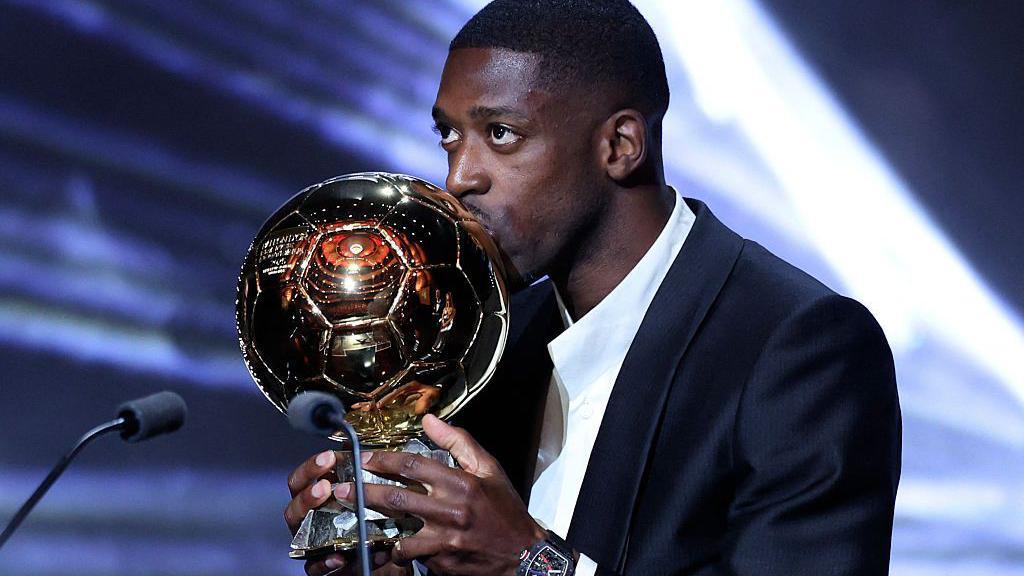Paris, September 22, 2025 – The spotlight in world football is once again on Paris Saint-Germain, and this time, it’s Ousmane Dembélé who has stolen the show. On Monday night, the French forward was officially crowned the winner of the men’s Ballon d’Or, football’s most celebrated individual prize.
The award, voted for by journalists from FIFA’s top 100 nations, covered performances between August 1, 2024, and July 13, 2025, a window that included both domestic competitions and the FIFA Club World Cup.
And in that period, there was no shortage of brilliance across Europe. Mohamed Salah racked up an astonishing 57 goal involvements for Liverpool, Kylian Mbappé outscored everyone with 43 goals, and Barcelona’s youngsters Lamine Yamal and Raphinha dazzled La Liga. Yet, when the dust settled, it was Dembélé’s name etched into history.
A Season That Changed Everything
PSG enjoyed their greatest campaign yet, sweeping to a historic treble in Ligue 1, Coupe de France, and their long-awaited first UEFA Champions League title, demolishing Inter Milan 5-0 in the final. Dembélé was at the heart of it all, finishing the season with 33 goals and 13 assists across all competitions.
He wasn’t the most prolific as Mbappé and Lewandowski outscored him, but his impact was unmatched.
The season didn’t start brightly for the 28-year-old. By mid-December 2024, he had just five goals in 18 games. But then came the explosion. From January until the Champions League final, Dembélé produced 25 goals and eight assists in 29 matches, outpacing every player in Europe for total goal involvements in that stretch.
His blistering start to 2025 included back-to-back hat-tricks against Stuttgart and Brest, and a run of 24 goals in 20 games. Even when his scoring dried up late in the season, he turned provider, registering six assists in his final 10 games, including two in the Champions League final.
Dominance in Europe
If there was a single reason Dembélé lifted the Ballon d’Or, it was his Champions League campaign. His 14 goal contributions (8 goals, 6 assists) were not only the best in PSG’s squad but also the highest ever by a French club player in a single European season. He also created 38 chances, joint-most with Raphinha.
Crucially, he delivered in big moments, scoring decisive winners against both Liverpool and Arsenal.
Numbers That Redefined His Career
What made Dembélé’s campaign truly special was the leap from his previous standards. His 46 goal involvements more than doubled his career-best season. His 33 goals smashed his personal record of 14. Just a year earlier, he had managed only six goals in 42 appearances.
Statistically, he stood shoulder to shoulder with the world’s best strikers despite often playing as a makeshift No. 9. He ranked at the very top among Europe’s forwards for non-penalty goals per 90 (1.07) and shots per 90 (5.3), while also excelling in progressive carries, touches in the box, and chance creation.
Was He PSG’s Best?
Some will argue Dembélé wasn’t even Paris’ standout performer. Achraf Hakimi, Vitinha, Fabián Ruiz, and teenage sensation Désiré Doué all had stellar campaigns, with Doué scoring twice in the Champions League final. But being the driving force of a team that finally conquered Europe made Dembélé’s case overwhelming.
From “PlayStation Player” to Ballon d’Or Winner
PSG coach Luis Enrique once compared Dembélé to the kind of player you’d always pick on a video game for his ability to change matches instantly. Last season, that fantasy came alive.
With his pace, flair, goals, and record-breaking numbers, Ousmane Dembélé wasn’t just PSG’s difference-maker, he was football’s biggest story. And that is why, on September 22, 2025, he walked away with the Ballon d’Or
Should we send you latest update about your favourite sports and team?
Enter you email in the box below and hit the subscribe button to join our teaming 876+ sports community.
